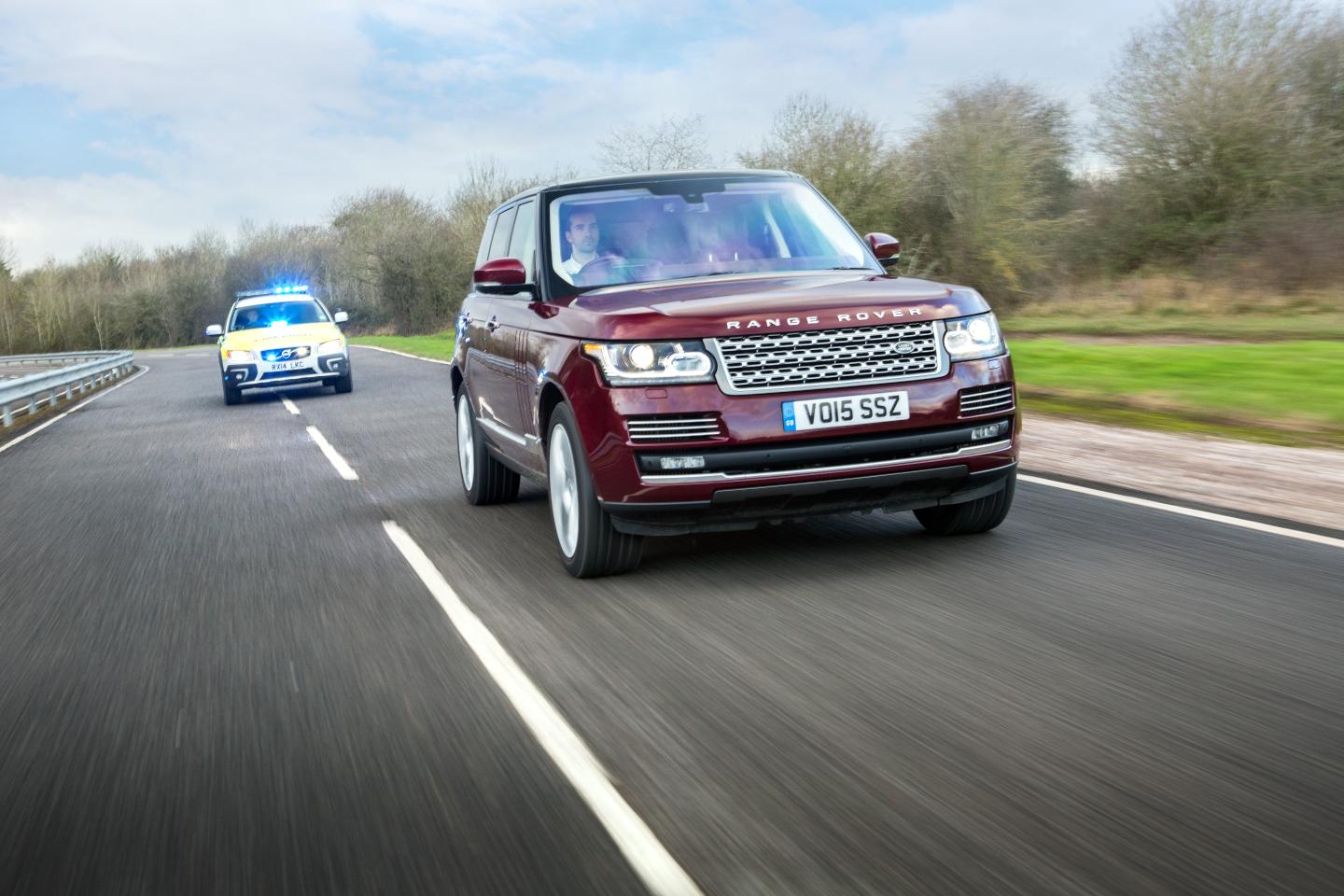Driverless cars to be tested on public roads
£20m boost to schemes will see autonomous vehicles on UK motorways around Coventry and Solihull

A free daily email with the biggest news stories of the day – and the best features from TheWeek.com
You are now subscribed
Your newsletter sign-up was successful
Autonomous car technology is set to receive a £20 million boost from the government.
The investment will go to eight new projects – six focussed on "accelerating autonomous and connected vehicles from an infrastructure and business point of view", says Auto Express, and two to develop driverless city centre shuttles to help the disabled and visually impaired. There are also plans to equip 40 miles of UK motorway with sensors for live, in-traffic autonomous-car testing.
The funding has come from the new £100m Intelligent Mobility Fund, established last year.
The Week
Escape your echo chamber. Get the facts behind the news, plus analysis from multiple perspectives.

Sign up for The Week's Free Newsletters
From our morning news briefing to a weekly Good News Newsletter, get the best of The Week delivered directly to your inbox.
From our morning news briefing to a weekly Good News Newsletter, get the best of The Week delivered directly to your inbox.
Around £5.5m has been designated to the UK Connected Intelligent Transport Environment (UK-Cite) project, which is behind putting driverless cars on a "connected corridor" of motorways and other roads around Coventry and Solihull.
Nearby Jaguar Land Rover (JLR) has confirmed its participation in the three-year tests, together with communications companies such as Vodafone and Siemens.
In a bid to accelerate the development of self-driving cars and safety, JLR will test 100 "smart" vehicles to develop technologies allowing them to communicate with each other. The cars will be capable of "over-the-horizon" communication to alert each other of potential dangers.
"If you have to jam on the brakes, wouldn’t it be handy if the car following you, still out of sight around a blind bend, was instantly warned?" says Top Gear.
A free daily email with the biggest news stories of the day – and the best features from TheWeek.com
The vehicles will also cooperate to improve traffic flow, particularly at junctions and motorway exits.
Many of the cars will gather information not only from the sensors of other vehicles, but also those set to be installed along the corridor, allowing them to read roadside infrastructure such as traffic lights and gantry signs.
It is not yet known when the technology will make its way onto a production JLR model. The company told Autocar it has no timeframe for such a vehicle and that the project has been designed just to study new systems.
The tests will be similar to those carried out by tech giants such as Google in California, albeit on a much smaller scale.
The announcement comes not long after it was revealed that electric driverless pods, similar to the ones used to ferry passengers at Heathrow airport, will soon undergo public testing in London, reports the BBC.
-
 The problem with diagnosing profound autism
The problem with diagnosing profound autismThe Explainer Experts are reconsidering the idea of autism as a spectrum, which could impact diagnoses and policy making for the condition
-
 What to know before filing your own taxes for the first time
What to know before filing your own taxes for the first timethe explainer Tackle this financial milestone with confidence
-
 The biggest box office flops of the 21st century
The biggest box office flops of the 21st centuryin depth Unnecessary remakes and turgid, expensive CGI-fests highlight this list of these most notorious box-office losers
-
 The best drama TV series of 2025
The best drama TV series of 2025the week recommends From the horrors of death to the hive-mind apocalypse, TV is far from out of great ideas
-
 Jony Ive's iPhone design changed the world. Can he do it again with OpenAI?
Jony Ive's iPhone design changed the world. Can he do it again with OpenAI?Talking Points Ive is joining OpenAI, hoping to create another transformative piece of personal technology. Can lightning strike twice?
-
 'Severance' and the best tech dystopia shows
'Severance' and the best tech dystopia showsThe Week Recommends If the Apple TV+ hit increased your appetite for bleak futurism, you have additional options
-
 The best TV series with multiple timelines right now
The best TV series with multiple timelines right nowThe Week Recommends Narratives that spend significant time in two or more stories can be especially rewarding
-
 A not-so-quiet place: Why is no one using headphones in public anymore?
A not-so-quiet place: Why is no one using headphones in public anymore?Under the Radar People are increasingly comfortable with both speakerphone and watching videos (very) out loud
-
 5 stellar TV series based on award-winning novels
5 stellar TV series based on award-winning novelsThe Week Recommends Max's 'The Sympathizer' is not the only successful adaptation of prestige fiction
-
 EV market slowdown: a bump in the road for Tesla?
EV market slowdown: a bump in the road for Tesla?Talking Points The electric vehicle market has stalled – with worrying consequences for carmakers
-
 Movies to watch in February, from 'Argylle' to 'Drive-Away Dolls'
Movies to watch in February, from 'Argylle' to 'Drive-Away Dolls'The Week Recommends A spy thriller tied to a real-life mystery, a solo Coen brother feature and more